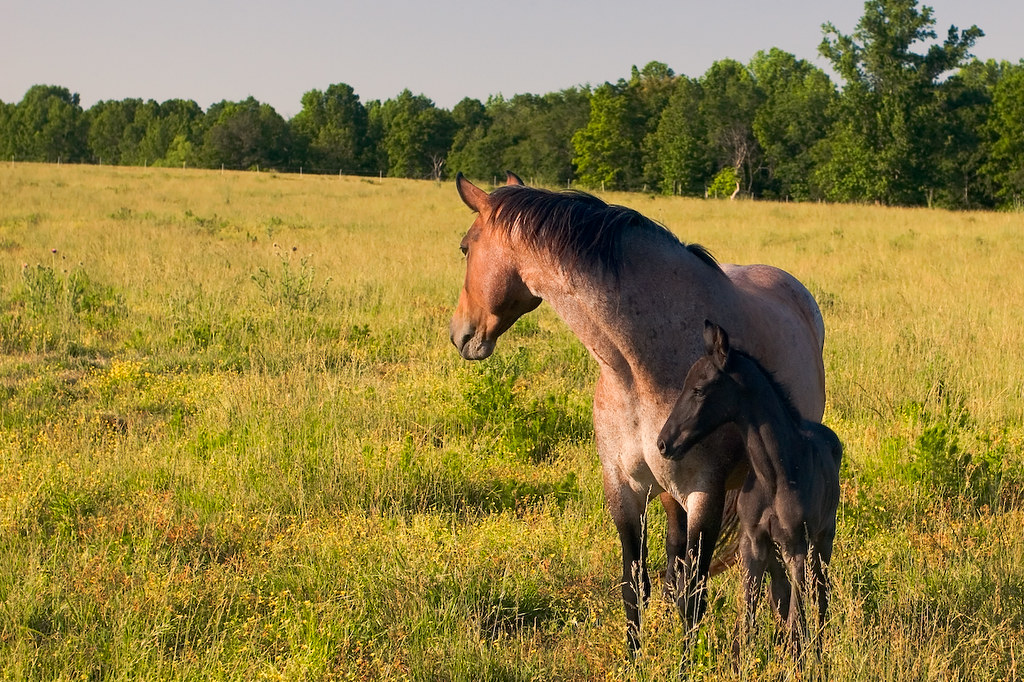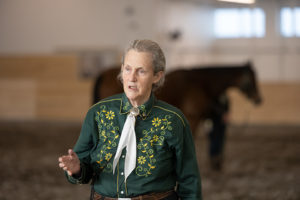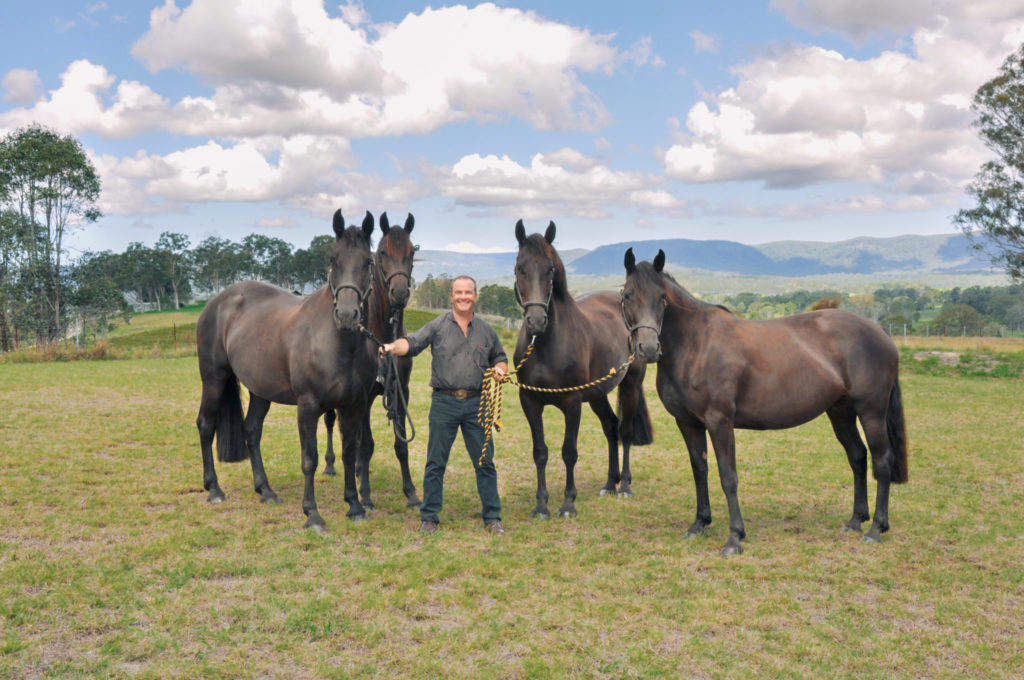
Story courtesy of the University of New England (Australia)
Horses are bred for specific work or sports, but individual horses may have temperaments that make them ill-suited to the roles they were bred for.
The resulting mismatch can be bad for horses and people.
In search of answers, Colorado State University professor of animal sciences and renowned animal behavior expert Temple Grandin is collaborating with University of New England (Australia) Professor of Animal Behavior Paul McGreevy on a landmark study to identify the genes that impact behavior in horses.

Led by McGreevy, the study will support future efforts to better match horses with their roles by identifying the genetic roots of certain horse behaviors. McGreevy developed the project after being awarded a Fulbright Commission grant that took him to CSU in 2022, and meeting with Grandin. The Fulbright grant is also supporting this project.
By identifying the genes that make horses prone to behaving a certain way under specific conditions, McGreevy and Grandin hope to establish a scientific foundation for breeding horses more reliably equipped with a temperament that suits the work they are asked to do.
Building the ability to predict behavior could radically enhance breeding programs and have profound advantages for horses and people alike, Grandin said.
“This project will give Quarter Horse breeders – and horse breeders everywhere – a proven path to improving horse performance while advancing horse welfare and reducing behavioral issues,” she added.
Engaging citizen scientists
Genetics is all about data – the more, the better. That’s why the study will utilize one of the world’s largest, most diverse groups of horse enthusiasts to act as “citizen scientists” in the study: the American Quarter Horse owners.
The Quarter Horse is an extraordinarily versatile breed. The American Quarter Horse Association (AQHA) has 280,000 paying members split across six disciplines: cutting, halter, racing, reining, Western Pleasure and working cow.
The study will enlist volunteer Quarter Horse owners across these disciplines to respond to a carefully curated set of questions about the behavior of horses in their care.
The data – along with the genetic information encoded in the tail hair that respondents will also be asked to submit – will be used to attempt to identify relevant, highly heritable differences in Quarter Horse behavior. That data may be used to predict behavioral traits at the genetic level.
Those who contribute data will be rewarded with an individual assessment of how the behavioral traits of their horses compare with all other Quarter Horses on the database.

A turning point
A new type of assessment
The innovation is the Equine Behavior Assessment and Research Questionnaire (E-BARQ), which enables researchers to collect detailed owner-reported data on observed horse behaviors while eliminating subjective judgements about what those behaviors represent.
Developed with input from an international panel of professionals drawn from a range of equine specialities, E-BARQ is an evolution of an equivalent canine behavioral instrument, C-BARQ, the development of which was led by the University of Pennsylvania.
The E-BARQ database already carries information on more than 5,000 horses. The data has yielded important insights. It has objectively shown that the behavior of horses changes as they age; that certain behaviors in-hand predict dangerous behaviors in-saddle; even that a horse may behave differently depending on whether it is being handled by a man or a woman.
The Quarter Horse project will draw on E-BARQ responses to suggest significant behavioral traits that are heritable. Future work will need to identify the sites in the horse genome that encode these behaviors, McGreevy said. That work accomplished, breeds like the Quarter Horse will then have a foundation for a genetic selection system like those that have become so powerful in the evolution of domestic livestock.
Call to Action
Quarter Horse owners interested in participating can visit https://www.e-barq.org/ and complete the Equine Behavior Assessment and Research Questionnaire for their horse. Once this data is analyzed, the research team may be reaching out to request hair samples in order to identify potential inheritable behavioral traits at the genetic level. Visit CSU Quarter Horse Project to learn more.